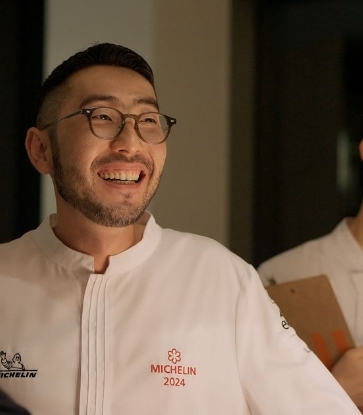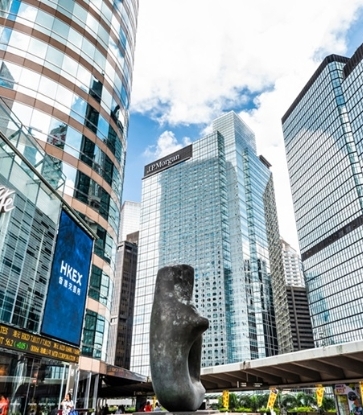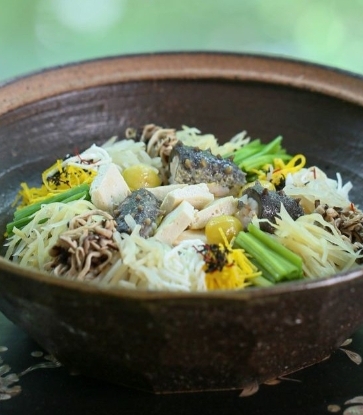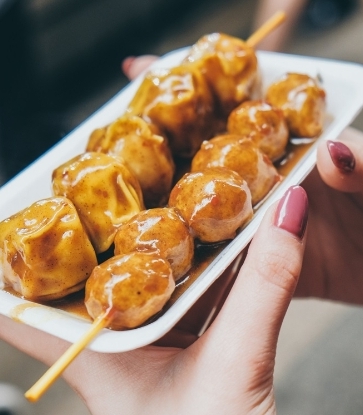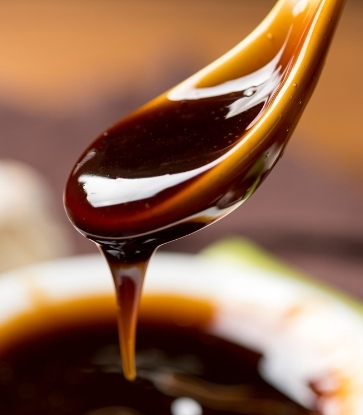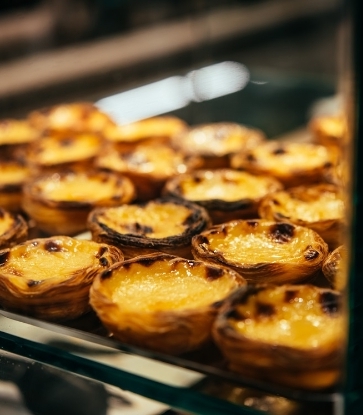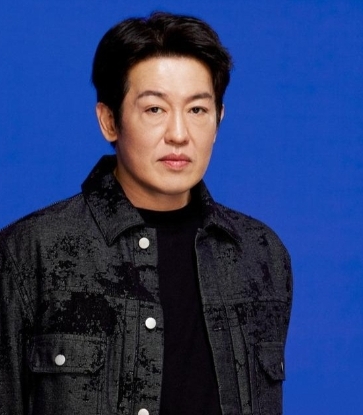Mosu Hong Kong’s owner chef Sung Anh stands at the center of haute cuisine’s new age of vogue, both as a pioneer and an established icon in Korean fine dining. Already celebrated as the mastermind behind Mosu, his recent appearance on the streaming platform, serving as one of the two judges overseeing 100 chefs on the show on Netflix’s Culinary Class War introduced his culinary philosophy to a broader audience, showcasing his extensive expertise and empathetic yet rigorous approach to mentoring aspiring chefs. Blending Korean cuisine with global standards, chef Anh has solidified his position as a leading figure in a world increasingly captivated by elevated culinary experiences.
The show, quickly becoming a top global non-English program series on the platform, gave viewers an intimate look at chef Anh’s philosophy. Known for his uncompromising standards and respect for culinary artistry, he balances innovation with tradition, setting benchmarks for fine dining in Korea. This dedication, combined with his authenticity on screen, has solidified him as a cultural ambassador and a culinary leader of Korea.
The chefs competing on Culinary Class Wars have found themselves at the heart of a culinary spotlight, with viewers eagerly discovering their unique philosophies, personalities, and journeys. These chefs are now seen as not just creators of dishes but as storytellers whose life experiences and inspirations shape their craft. Patrons are drawn to their restaurants, hoping to experience more than just a meal, yearning to glimpse the stories and meticulous processes behind each dish. This trend coincides with the rise of Korea's fine-dining scene and the increasing desire of travelers to delve into Korean culinary artistry. As a result, major food and beverage giants strategically position chefs like Anh as the faces of their brands, bringing forward the chefs’ expertise and storytelling as powerful branding assets.
“When tradition, technique, and fresh idea converge, true innovation is born.”
Chef Sung Anh’s consistency shines in all his work, whether in interviews or recent advertising projects. On Nov. 4, chef Sung Anh appeared in an ad for a global sandwich franchise, where he gave an honest assessment, commenting, 'I’d eat it occasionally.' As of Nov. 10, the ad had garnered approximately 1.4 million views on YouTube. "When I receive advertising offers, sometimes I just say, 'No, thank you.' That straightforward response can surprise advertisers, but there are things more important to me than ads or money," he explained, reflecting a values-driven approach that remains true across his ventures. "I won’t accept offers that lack sincerity. I’m not an entertainer or a businessman—I’m a chef. Everything I’ve learned and done is from the kitchen, and I don’t want to lose that by presenting a different persona." He added.
Reflecting on people’s reactions to his authentic on-screen presence, chef Anh smiled, “It’s funny—elementary school kids seem to really like me! (Laughs) People even say I resemble a beluga. Belugas are pretty cute, so I’ll take it. I haven’t changed anything about how I look; I just accept it humbly. It’s all good.”
In an interview with the MICHELIN Guide Korea, chef Anh shared that his commitment to Culinary Class Wars was not just about entertainment but about positively impacting the dining industry.
Mosu Seoul is set to reopen at the end of February. With an eye on the future yet firmly rooted in his principles, chef Anh continues to lead with authenticity, remains committed to staying true to his craft. When asked if he is considering other locations beyond Hong Kong, he added, “If new ideas arise, I’ll be sure to share them with you.”
During the casting process, you mentioned, "No one in Korea would be able to dispute my judgment." Could you elaborate on this?
Chef Anh: The reason I said this was after hearing an explanation of what Culinary Class War was about and sharing my thoughts on it. I hoped the program would be a positive influence on the dining industry, rather than just a show. I wanted to ensure that the hard work in this profession was conveyed seriously, not as mere entertainment, and I emphasized this point strongly. I expressed this strongly, and when they replied with "Understood," that’s when I finally felt they were seriously considering me. After all, there was a large budget at stake, and they, too, were carefully evaluating me.Naturally, I also had my conditions. I requested, "If the show proceeds in this direction, I'll participate," and the production team agreed with my terms. If they had dismissed my opinion and focused solely on entertainment, I would have immediately walked away. But since they respected my perspective, I was grateful to accept their offer.
As we continued discussing, I realized they were ultimately looking for someone with a deep understanding of a variety of genres. For instance, many people know Korean or Japanese cuisine better than I do. There are plenty of experts in Korea who surpass me in Korean cuisine, and in Chinese cuisine, there are even more who are far superior.
However, when it comes to someone who has broadly experienced different genres and can encompass everything, I believe I have the most experience. In terms of someone who can comprehensively judge everything from street food to MICHELIN-starred restaurants, I can confidently say that I am the most suitable person. It might sound a bit boastful, but that's truly how I feel.
Is there anyone in particular who stands out to you—someone who truly absorbed your advice and showed growth? Perhaps someone who embraced criticism positively and seemed to move up a level?
Chef Anh: From what I observed during filming, at least while the cameras were rolling, the participants all seemed to listen to what I had to say. Of course, they might have had their own thoughts afterward, like, "What does he know?" But in person, they took my words seriously. After the show, one of the contestants—a chef known by his nickname, ‘Korean Taco King’—reached out to me. I don’t remember his exact name, but I had actually visited his restaurant with my family before. Back then, he didn’t know me—I’m not a public figure. Later, when I saw him standing in front of me as a contestant, it was an interesting moment. Unfortunately, that scene didn’t make it to the broadcast.'Korean Taco King,' chef James Woobum Jin from Escondido, could you tell us more about him?
Chef Anh: Chef James Woobum Jin definitely left an impression. I was assigned to judge his dish, and I remember saying to him, "Today’s just not your lucky day." The reason I said this is that, in my opinion, if I hadn’t been his judge, he might have passed that round. If Baek Jong-won had been judging, he probably would have let it slide. However, since I know Mexican cuisine well, I picked up on a minor mistake he made—one that most people wouldn’t have noticed. Growing up in California, I have a deeper understanding of Mexican food. His mistake was almost unnoticeable, something that 99% of people wouldn’t detect. I won’t mention it here, though. Later, he messaged me, saying, 'Thank you for your honest feedback chef; it really helped shape my restaurant’s menu.' I replied, encouraging him not to dwell on our decision made from just one bite and to keep pushing forward. This exchange has helped us maintain a good relationship.On the program, you emphasized "innovation" quite a bit. How do you define innovation?
Chef Anh: Honestly, defining the standard for innovation may not be my role, but I do have my own criteria. Within Seoul and Korea, we have our unique standards, but ultimately, we’re all aiming to align with international standards. To truly understand these standards, it’s essential to be aware not only of what we’re creating here in Korea but also of the culinary developments and directions happening in Europe, the U.S., South America, Africa, and beyond.Considering that this program reaches not only Koreans but also chefs worldwide, I don’t think repackaging old techniques and calling it innovation is accurate. True innovation involves thoughtful exploration and new challenges that bring about real change. Simply dressing up the old doesn’t make it innovative. Of course, that’s my personal view. To someone unfamiliar, everything might seem innovative, but professionals should know better, and only with that understanding can we reach global standards.
If small efforts are aligned in the right direction, that’s commendable, but trying to force outdated practices to appear innovative is not genuine innovation. Innovation doesn’t happen simply because we suddenly know something new; it’s about creating new attempts that knowledgeable people can recognize as valuable. And this is incredibly important. Just like how using AI to write a paper doesn’t make it genuinely innovative, true innovation requires originality and clear direction. It may involve risks, but it should bring discovery and wonder. That’s why we approach this carefully.
Were there any instances during filming where you thought, "Now, that’s innovative"?
Chef Anh: I found chef Ji-sun Jung’s dish, Siraegi Bath using the Basi (拔丝) technique, where sugar is spun into fine threads, to be somewhat innovative—not just because of the technique, but because she combined culture and ingredients in a new way under high pressure. The concept of bath incorporated siraegi (dried radish greens), a distinctly Korean ingredient. While siraegi exists in Chinese cuisine, using it in a uniquely Korean way was an original attempt. I believe that true innovation happens when tradition, technique, and fresh ideas come together.What impact do you foresee it having on the industry?
Chef Anh: I believe this program is already having a positive influence on the industry. While it’s hard to predict its future direction, for these issues to yield positive results, I think chefs need to put in even more effort. Whether they hold MICHELIN stars or not, our industry—including myself—should fully prepare during this period of heightened local and international interest to find effective ways to introduce our culture. Only then can we showcase the best of what we do.If we were to stop here just because business is doing well, our culture would also stagnate. This can’t be merely a passing trend or one-off event. However, if our community works collectively, I believe this opportunity could propel the dining industry to new growth and development.





